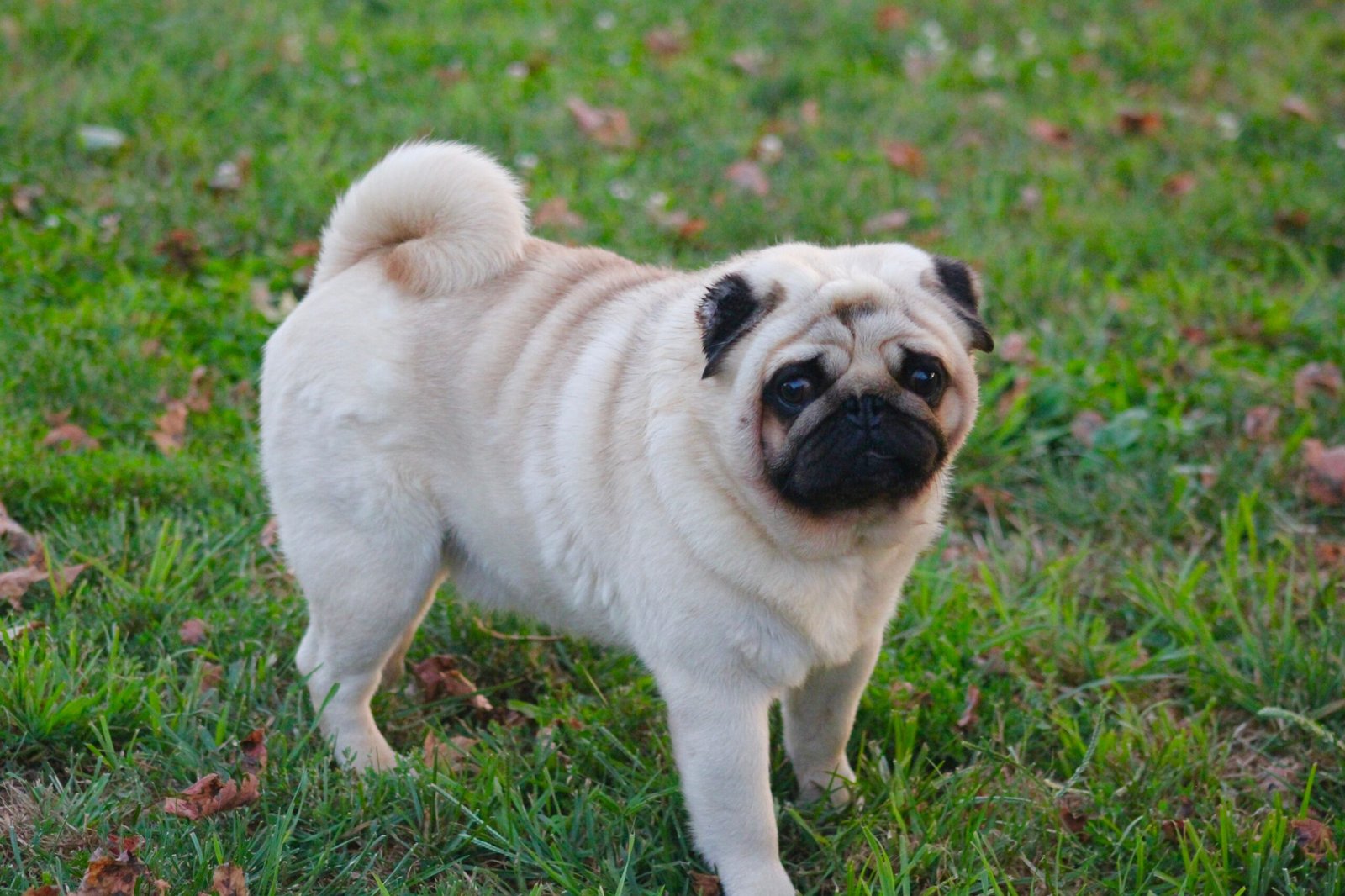Description
- Activity Level: High
- Shedding Level: Low
- Grooming Level: Moderate
- Trainability: High
- Good for Novice Owners: High
- Adaptability: Moderate
- Kid/Pet Friendly: Very
- Prey Drive: Low
- Watchdog: No
- Average Size: Small
- Average Lifespan: 12-15 Years
Temperament
The Pug is a playful and outgoing dog breed with a charming personality. They tend to be very loving towards children and also get along well with other pets and dogs. They are a companion breed at heart known for their gentle nature and sociable personality. They love to give love and receive it in return. Their sensitive nature makes them intuitive as well and Pugs will often sense the moods of their owners and react accordingly. They crave attention and affection from their owners and absolutely love taking naps.
Adaptability
This dog breed is often described as an ideal house dog and they are moderately adaptable. They will do well in homes of any size, including apartments. The Pug also adapts well to city or country life and are a good fit for singles or families of any size. Although they are highly adaptable to various living situations, they are less adaptable to climates. Pugs are very sensitive to the heat and overexertion, so they are best-suited to moderate climates. They also love to be with their families and will not be happy if left alone for a long time.
Health
As with any dog breed, the Pug has some health conditions to be aware of. In particular, corneal ulcers and dry eye are some potential eye problems that can occur. Additionally, Pugs can be susceptible to hip dysplasia, patellar luxation, and encephalitis. Asking the breeder about the genetic history of the parents and to see health clearances can help allay concerns for some of these health issues. Recommended health tests from the National Breed Club include a Pug Dog Encephalitis DNA Test, Hip Evaluation, Ophthalmologist Evaluation, and Patella Evaluation.
Pugs are also big foodies. They love to eat! Their love for food means this dog breed is prone to obesity. As a brachycephalic dog, their large head and short snout often cause respiratory problems, which can limit their exercise at times and contribute to weight gain. Obesity can exacerbate respiratory issues in your Pug, so it’s important to watch their caloric intake, limit the use of treats as a reward, and to ensure they get enough exercise. Due to their short snout, Pugs are also prone to “reverse sneezing”, especially when they are excited. This will cause them to quickly gasp and snort, which can sound relatively alarming. These episodes are usually not harmful as your Pug is just clearing their palate and throat. Sometimes, you can help shorten these episodes by gently massaging your dog’s throat.





Reviews
There are no reviews yet.